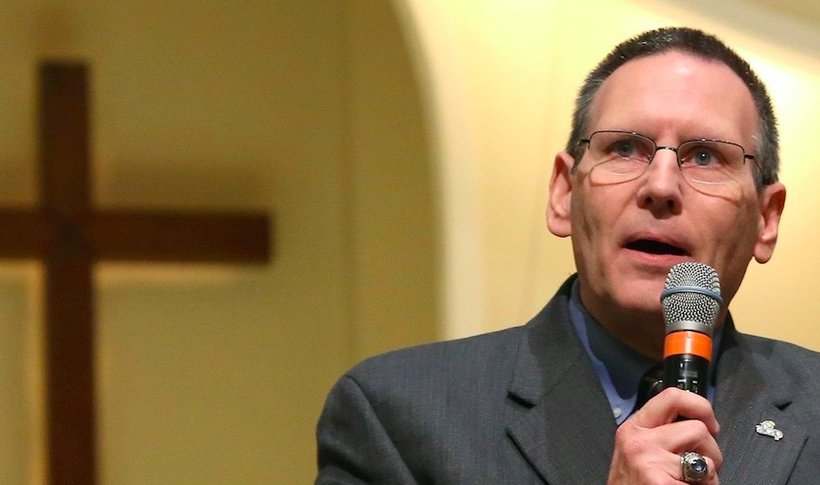
By: Tom Saunders, General Counsel and Director of Government Affairs, Alabama Forestry Association
June 2015 is one year away and the clock is ticking.
Why is this date important? It’s the date that the Education Rainy Day Fund must, by constitutional mandate, be repaid.
Six years ago, Gov. Bob Riley drained this account to the tune of $437.4 million in order to lessen the impact of proration on the education budget.
Why did he have to do that? Frankly, because of poor fiscal management by the Alabama legislature, which was controlled by Democrats at the time. They knew when they passed that year’s education appropriations bill that there was not going to be sufficient revenue to pay for it. But they went ahead and did it anyway out of political expediency.
They had gotten so used to the Federal Government bailing them out with “stimulus” money that they couldn’t help themselves.
So fast forward to today, and get ready for some numbers.
We have repaid $274.8 million to the Rainy Day Fund, but we still owe a balance of $162.6 million, which again, must be repaid by June 2015 — one short year away.
For the current fiscal year, which ends Sept. 30, the education appropriations bill includes an “absolute appropriation” of $35 million to repay the fund, and a “conditional appropriation” of $65 million.
Conditional appropriations are essentially line items in the State’s budget that will be paid on the condition that there are funds still available after all the “absolute” appropriations have been covered.
If Alabama’s revenues exceed the amount of money needed for “absolute appropriations,” and the State is below the spending “cap” created by the Rolling Reserve Act (which we are for FY14), then the difference is spent on the conditional appropriations set forth in the bill.
So how much is going to be leftover at the end of FY14? Good question. It depends on how well the economy performs.
The Legislative Fiscal Office (LFO) estimated during the debate over the education appropriations bill that Alabama’s economy would experience 3.5% growth this year. That would give us a budget surplus of around $100 million, plenty of funds to pay both the $35 million absolute appropriation and the $65 million conditional appropriation, and thus leave the need for a $62 million absolute appropriation in the FY15 bill.
The governor’s office predicted that the economy would grow even faster than LFO was estimating, which would lead to an even greater surplus and only require a $35 million absolute appropriation in the FY15 appropriations bill to make the Rainy Day Fund whole.
This week, unfortunately, the Federal Reserve sharply reduced its forecast for U.S. economic growth down to a paltry 2%, a far cry from the numbers mentioned above.
Among Alabama’s 140 legislators, there was one principal voice of reason that opposed the overly-optimistic scenarios.
Sen. Tripp Pittman (R-Montrose), Chairman of the Senate’s Education Trust Fund Committee, adamantly opposed anything short of a $62 million absolute appropriation. He fought for it on the Senate floor, even as legislator after legislator made the argument that massive economic growth was just right around the corner.
The House passed its bill with only $27.5 million appropriated to pay back the Rainy Day Fund. The Senate, thanks in large part to Sen. Pittman’s prevailing leadership, passed its bill with the full $62 million.
Unfortunately, when the conference committee of House and Senate members met to reconcile the differences between their bills, Sen. Pittman was only one of six conferees on the committee. As a result, the final bill only had a $35 million absolute repayment for FY15.
So now, without the previously anticipated economic growth, the State of Alabama is projected to come up at least $27 million short on its constitutionally-mandated commitment to repay the Rainy Day Fund, and that’s assuming that the conditional appropriation of $65 million is fully funded. Remember, LFO was anticipating a 3.5% growth rate for that to occur, but the Fed is now projecting a 2% growth rate for the rest of the year.
June 2015.
It’s coming fast.
Where will the money come from?
The legislature will most likely have to pass a “supplemental appropriations bill” during the next legislative session to repay the money. In order to do that, they will have to violate the Rolling Reserve Act, which was originally passed to require the legislature to exercise fiscal restraint.
Is this a fiscal crisis? No. The problem will ultimately be solved. But it will be a messy solution that looks like it will require the legislature to blast through spending caps.
All the more reason to pass a bill to make the Rolling Reserve Act a constitutional provision.
(A version of this article originally appeared on the Forestry Association’s governmental affairs blog)
Tom Saunders is General Counsel and Director of Government Affairs for the Alabama Forestry Association











